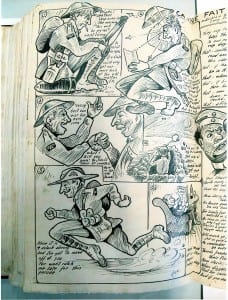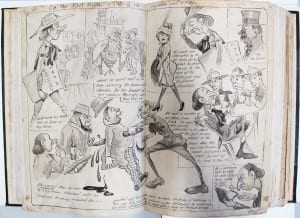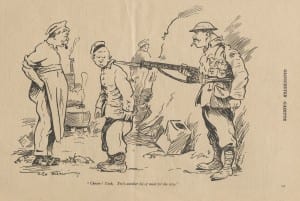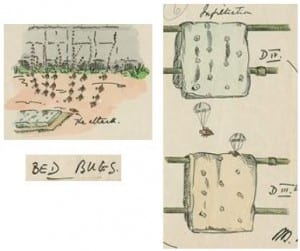Comics and the World Wars
Many people have childhood memories of comic strips and of following war stories with familiar characters on a regular basis. The comic format has now expanded from strips and magazines aimed at children, to books aimed at adults, spawning a new ‘genre’ of factually based stories. In France comics are referred to as the ‘9th art’.
In the UK world war stories faded into decline from the mid 1980s, whereas Francophone and Asian comics are still being produced today. So, a transnational comparative approach to WW1 & WW2 strips reveals different aspects of each country’s experience as either undefeated, or occupied lands and peoples. Comics can be for children’s educative purposes, or have a political message focused upon adult audiences, or contain covert propaganda.
Researchers are examining the kind of views that comics offer in specific aspects of world war history that usually receive less attention, such as the endangered heritage of The Great War that has become overshadowed by the popular emphasis on World War 2. Is there a unique form of insight into the harsh realities of trench warfare or in comic depictions of heroes, enemy and victims?
Researchers are also investigating the relationship between creators, publisher & reader & the mutual influence upon each other, demonstrated by the long term survival of certain popular characters & formats. Further, the project looks at ethnic issues through depictions of the Asian theatre of war. The role of women either as caring mothers or uniformed workers is being scrutinised. Researchers are looking at the way eyewitness accounts & personal testimony interact with elements of illustrative fantasy in order to represent events that are ‘un-representable’ such as the Holocaust and Hiroshima.
Thus this project opens up a new area of debate, drawing attention publicly to the need to revisit old comics. The message is that these cultural artefacts can offer a popular record of attitudes, feelings & character types. Preliminary findings suggest that the range of cultural archives used by historians as sources should be widened to include some factual comics & that future ‘public history’ (now dominated by popular film & TV) should also include them.





